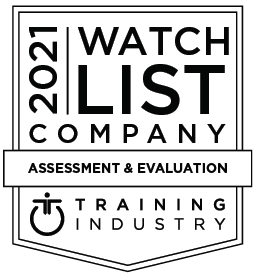It takes a specific set of technical skills to manage projects effectively: time management, requirements management, budget management, forecasting, risk assessment, resource management, reporting, etc.
But the single most important skill may be one that’s often overlooked: communication skills.
Poor communication dooms 1 in 5 projects to failure.
Poor communication is the reason one in five projects fail, according to a Pulse of the Profession® In-depth Report: The High Cost of Low Performance, published by the Project Management Institute® (PMI®) . The report reveals that for every $1 billion organizations spend on projects, $75 million is at risk specifically due to ineffective communication.
And while 55 percent of project managers agree that “effective communications to all stakeholders” is the most critical success factor in project management, I think that number should be even higher — especially when you consider what’s at stake.
Project Managers must regularly lead high-stakes conversations and presentations, in order to help project stakeholders see the big picture and persuade them to take action.
But, it’s rare to find technical professionals who innately possess the communication skills needed to perform at the highest level.
In my decades of experience working with technical professionals, many organizations take communication skills for granted, providing little to no training or support to help technical professionals succeed in this arena. To think that 20 percent of all project management failures are preventable!
According to PMI’s report, there exists a “critical need for organizations to address communications deficiencies at the enterprise level.” In fact, a 2012 Towers Watson Change and Communication ROI Study Report showed that companies that have highly effective communications practices are 1.7 times more likely to outperform their peers financially.
Communication skills, rather than a saboteur of success, can be an agent of outperformance.
For organizations that want to become best-in-class project managers, consider taking the following steps:
- Survey project stakeholders to understand where communication gaps exist
- Acknowledge communication gaps and deficiencies
- Make communication skills a top priority for project managers
- Provide project managers with the right training and standardized support tools
- Share communication best practices across the project management office
It’s painful for me (and for project participants, no doubt!) to see businesses squander resources, time, and money on a project management problem that is entirely preventable. Make communication a priority today, to build a highly effective project management office of the future.
Since 2011, Mandel has been an approved PMI Registered Education Provider (R.E.P.) by PMI. PMI R.E.P.s are educational organizations that have demonstrated that they are capable of providing world-class effective project management training.
Mandel has helped project managers learn how to craft clear and compelling messages; capture stakeholder interest more quickly; and influence smarter project decisions and actions. Contact us to discuss how we can help your organization.
Project Management Institute®, PMI®, and Pulse of the Profession® are all registered marks of Project Management Institute, Inc.










